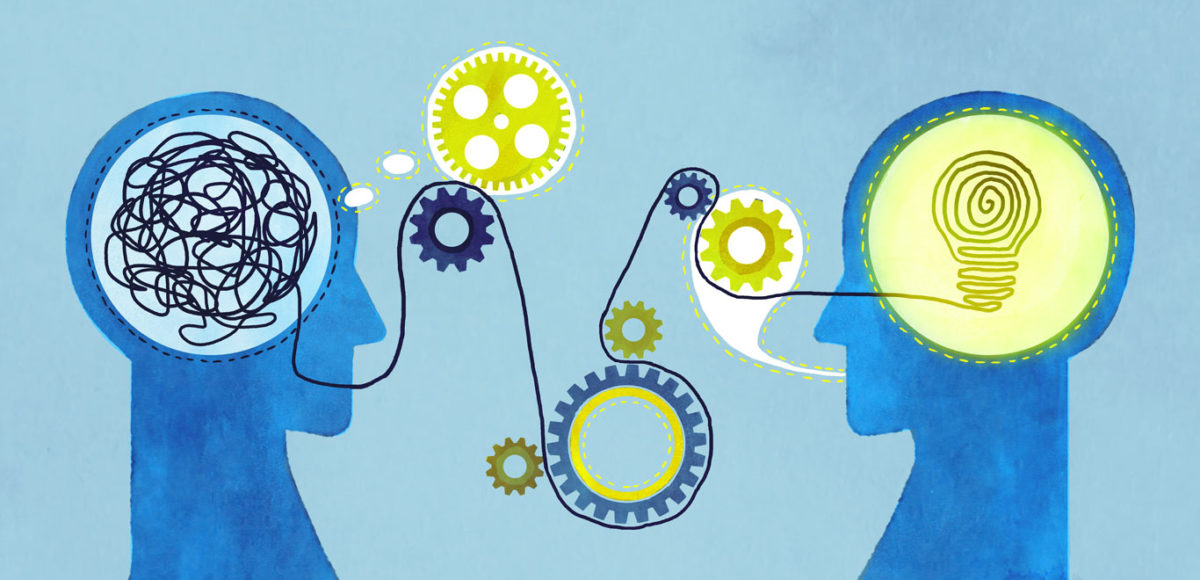by David Berry
In a digital age the humanities need to communicate humanistic values and their own contribution to public culture more than ever. The humanities are particularly important for continuing to ask the question: what is a life worth living? Today we live within a horizon of interpretability determined in large part by the capture of data by algorithms which overtake our lives and thoughts. This is a world that relies upon automation by computation and the manipulation of data using sophisticated software. It is a data-intensive world built on the economic realisation of an increasingly data-intensive scientific milieu.
However, this has a number of darker aspects, from extensive value-extraction of private data and the emergence of new forms of digital propaganda, to the creation of an economy of imperious digital monopolies. We need to ask key questions about who, what, why, when, where, and how in relation to digital technologies, but we also need to develop these questions in relation to humanistic inquiry and being human. The digital humanities are an increasingly important part of the humanities and are key to helping us to understand and live in this new digital world.
The digital humanities can be understood as a set of interlocking and interdependent parts that, whilst distinct and standing alone to some degree, nonetheless adds up to make the whole greater than the sum of its parts. In other words, digital humanities as a coherent, if nonetheless still contested, discipline.
A first necessary insight is to reject the idea that digital technology is invading the humanities. Computers were used for humanist ends from very early on in their history, and not only, as one might think, as mere storage for large libraries of text. From these early uses, and as computation developed and improved, computers were used for sophisticated searching, storage and the manipulation of textual data. More recently, with advances in digital imaging, high-resolution displays and visualisation techniques, it is now possible to produce very high-quality reproductions of humanities texts that can widen and deepen our understanding of culture.
The second necessary insight is that with their connection to networks, particularly the internet, these digital files are now made incredibly easy to access, and therefore use and manipulate from almost anywhere on the globe. These publicly available databases and archives make digital technologies hugely exciting for the possibilities they open up for the humanities.
Digital humanities has emerged as a field with an early focus on digital tools and archives in relation to these database collections of texts, artworks, scholarly works, dictionaries and lexicographic corpora. Digital humanists have developed methods that are new to the humanities, such as computer statistical analysis, search and retrieval or data visualization, and apply these techniques to archives and collections that are vastly larger than any researcher or research group can handle comfortably. They allow us to explore how to negotiate between close and distant readings of texts and how micro-analysis and macro-analysis can be usefully reconciled in humanist work. In doing so they are increasing the capacities of humanists to work with larger data sets, corpora and image archives and also to move between them with greater ease. The digital humanities can be understood as a set of interlocking and interdependent parts that, whilst distinct and standing alone to some degree, nonetheless adds up to make the whole greater than the sum of its parts. In other words, digital humanities as a coherent, if nonetheless still contested, discipline.
Future directions for the digital humanities must be more critically oriented and more reflexive of the way in which computation is no longer merely a tool for thought, but an infrastructure or milieu. This requires that social, cultural, political and economic questions raised by digital technology be part of critique in the digital humanities. I argue that we need to continue to develop a programme of criticism with respect to the computational and particularly its manifestation in digital capitalism through what I call critical digital humanities.
One of the key themes in my work is that we have to strengthen critical reflexivity in the digital humanities, and I want to expand a little on this notion. Here there is only space to provide pointers towards a set of practices and ways of thinking rather than a comprehensive blueprint. Nonetheless, I want to suggest that a way of critiquing the, sometimes, instrumental tendencies within the digital humanities could be a greater focus on the socio-technical aspects of the technologies. This means examining how they are assembled and made as well as the possibility of making them otherwise. For example, we need to understand and challenge the ways in which “smart” objects and infrastructures bypass our cognitive capacities in order to maximise data-intensive value-extraction. In effect, they are able to undermine the human capacity for critical reflexivity and reason. This is also to foreground the importance of the politics and norms that are embedded in digital technology, algorithms and software. In response, through a critical digital humanities we will need to develop what I call data-intensive critique together with a data-intensive ethics.
A data-intensive critique would map and critique the use of the digital but be attentive to questions of power, domination, myth and exploitation. As such, critical digital humanities can address the concerns that digital humanities lacks a cultural critique. Developing a critical approach to computation calls for the digital itself to be historicized. Focus on materiality of the digital draws our attention to the microanalysis required at the level of digital conditions of possibility combined with macroanalysis of digital systems.
As research continues to be framed in terms of computational categories and modes of thought, the digital must become a research programme in itself.
Computation is a historical phenomenon and can be traced and periodized through historicization. This is important because the hegemony of computational concepts and methods may lead to new forms of control, myth and the privileging of computational rationality. As such, critical digital humanities should not only map these challenges but also propose new ways of reconfiguring research and teaching to safeguard critical and rational thought in a digital age. Digital humanities is one of a number of cognate disciplines that must remain attentive to moments in culture where critical thinking and the ability to distinguish between concept and object become weakened.
Asking questions about the normative and political delegations into software/code requires us to develop data-intensive ethics to challenge data practices, deontological claims and the consequences of data use. This would encourage us not just to ‘build things’ but to take them apart and question the values that are embedded in the software – making critical software to test our ideas and challenge our assumptions. This would call on us to turn our hermeneutic skills on the very software and algorithms that make up these systems.
As research continues to be framed in terms of computational categories and modes of thought, the digital must become a research programme in itself. As a condition of possibility for research, digital technologies must themselves be subject to critique and the critical digital humanities through data-intensive critique together with a data-intensive ethics would help us to develop and strengthen humanistic approaches to the data-intensive world.
We need to embed the capacity for reflection and thought into a critically-oriented digital humanities and thus to move to a new mode of thinking, a two-dimensional thinking responsive to the potentialities of people and things. This requires enabling a new spirit of criticality – critical reason. In other words, we need a reconfiguring of quantification practices and instrumental processes away from domination and control, towards reflexivity, critique and democratic practices.

 | Technology, AI and ethics.
| Technology, AI and ethics.

